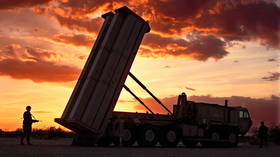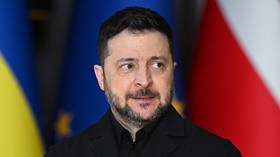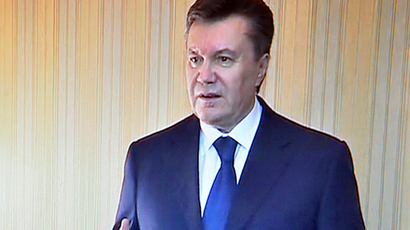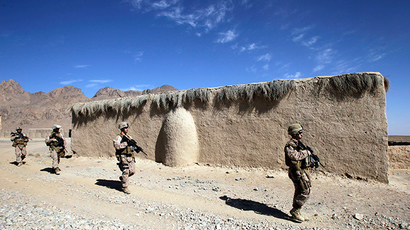Good advice, wrong address: Russia responds to Susan Rice ‘no tanks to Ukraine’ warning
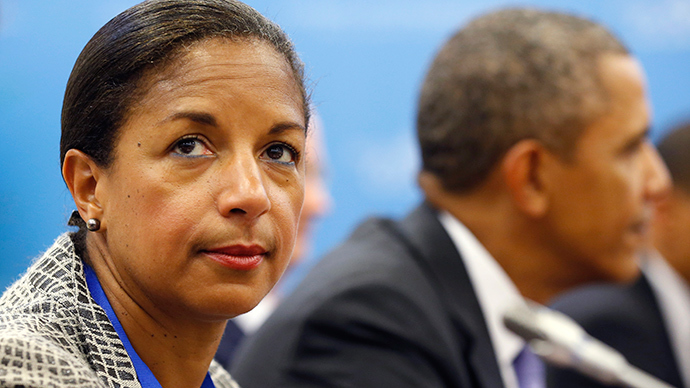
Russia sees merit in the advice against use of force in Ukraine which US National Security Adviser Susan Rice voiced, but believes it was wrongly directed towards Moscow. Washington would be a more appropriate recipient of the piece of wisdom.
“We have noted the expert assessment of Susan Rice based on multiple cases when American troops were sent to various places of the word, especially those where the US administration believed the norms of Western democracy were in danger, or where the local regimes were getting out of hand,” a Russian Foreign Ministry source told news agencies on Monday.
The source added that, “We expect that national security adviser would be giving to the US leadership the same advice on the mistaken path of the use of force if it decides to conduct a new intervention.”
The veiled reproach comes after a Sunday interview, in which Susan Rice said bluntly that sending troops to restore ousted President Yanukovich’s leadership in Kiev "would be a grave mistake" on the part of Russia.

Rice did not elaborate on why she believed Moscow would even consider using military force to help Yanukovich. During the three months of confrontation in Ukraine, Western officials flocked to the country in support of the opposition crowd. Russia, meanwhile, distanced itself from the situation and only criticized the West for what Moscow considered blatant meddling in Ukraine's internal affairs.
“The position of some of our Western partners doesn’t show genuine concern, but a desire to act out of geopolitical self-interest,” said a statement on the Russian foreign ministry’s website.
Following the ouster of President Yanukovich, Moscow has not changed its stance nor voiced any support for him. It only criticized the opposition for not keeping its word and breaking a West-sponsored reconciliation agreement, which it signed with Yanukovich.
Moscow wants to see somebody in Kiev who would have the authority and power to implement whatever agreements the countries may negotiate, Russian Prime Minister Dmitry Medvedev stressed on Monday.
“Frankly, the legitimacy of many governmental bodies is in doubt there,” he said. “Treating masked men armed with Kalashnikov rifles, who are now circling Kiev, as a government – we would find it difficult working with such a government.”
Since the collapse of the Soviet Union and the establishment of new Russia, it has fought just one war with a foreign power. In 2008, Russian tanks were sent to Georgia, after the latter tried to use military force to seize control over its breakaway region of South Ossetia. Russia justified its actions by the death of Russian peacekeepers who were stationed in Georgia under a UN mandate with the brief not to allow military action between Georgians and Ossetians, and who were killed by the advancing Georgian troops.
Russia also used its military in its own territory in the Republic of Chechnya, which went from a nationalist uprising to forming a de facto independent government to transforming into a hotbed of banditry and terrorism, spilling violence into neighboring Russian regions. Moscow eventually took Chechnya back under its control through alliances with some local militant factions and by offering generous rebuilding funding in exchange for assurances of security and loyalty.

In 1991, when the USSR ceased to exist, the US conducted a war against Saddam Hussein's Iraq. Since then America has fought four major wars against foreign nations, including the bombing campaign in Yugoslavia, the invasions of Afghanistan and Iraq (for the second time), and the bombing campaign in Libya. It stopped short of starting a fifth war against Syria in 2013, a move which was prevented in large part by the mediation of Russia, which convinced the Syrian government to relinquish its chemical weapons.
Washington justifies its interventions on humanitarian reasons and the obligation to depose repressive governments. Such obligations however, do not seem to apply to countries which have a poor human rights record, like Saudi Arabia, but remain American allies.








